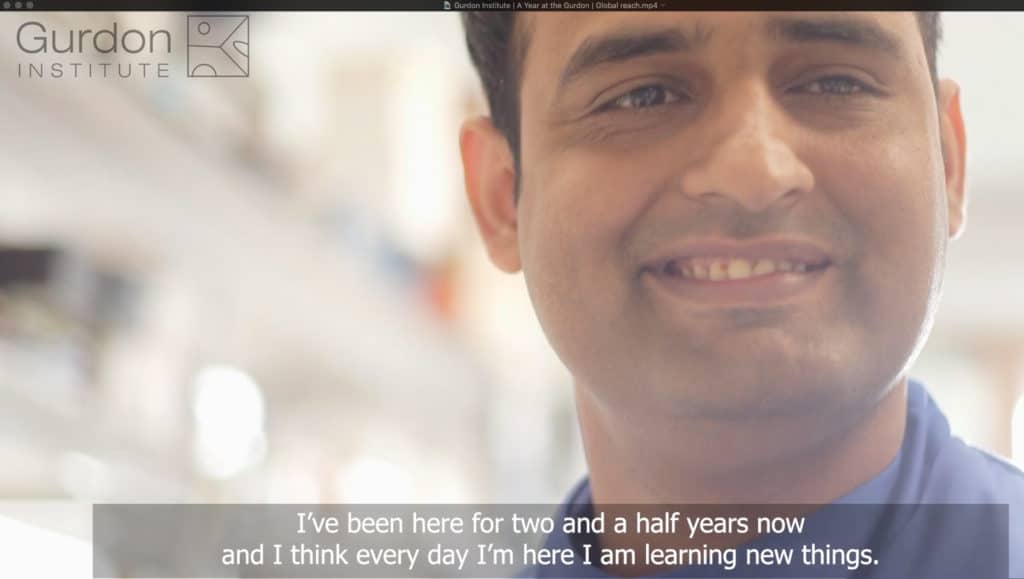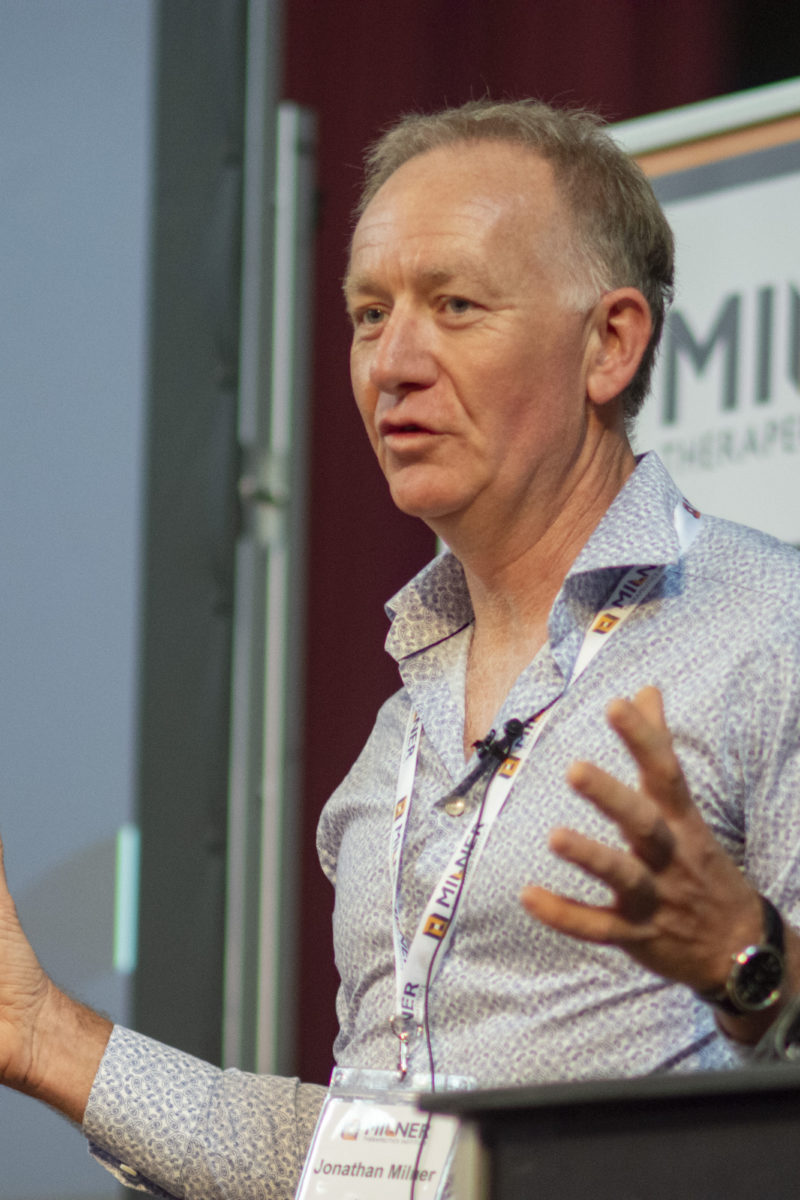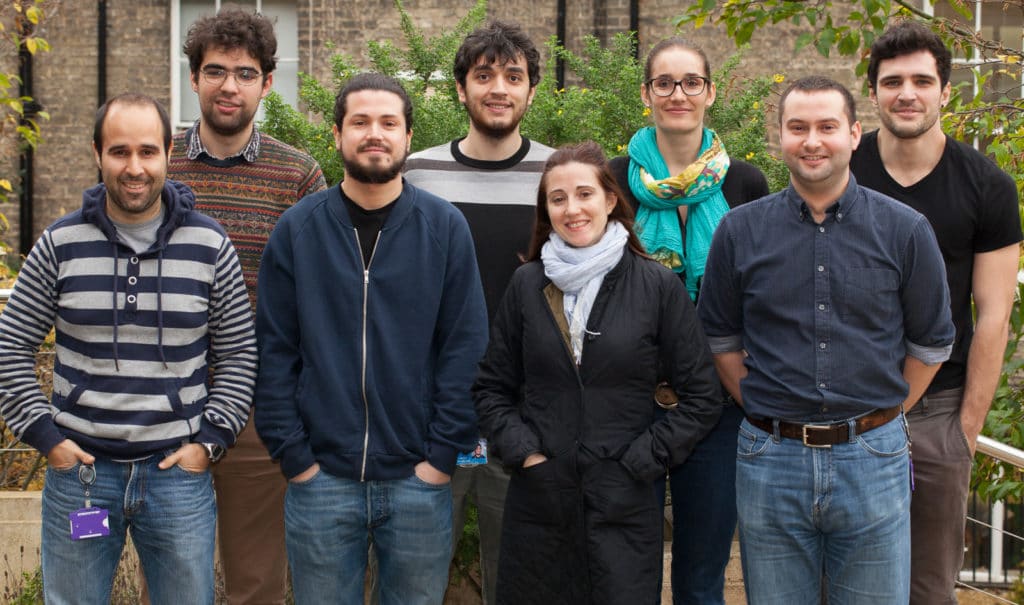
Meri Huch and her lab in 2015, by James Smith of the Livesey lab
Alumni
We are very proud of the hundreds of scientists we’ve trained over 30 years who have taken their science expertise around the world. Many alumni keep in touch with their labs and with the Institute, and return for milestone events and to give science or career talks.
Global impact
Our alumni move on to all manner of research, academic, industrial and policy positions, exploring career opportunities in new places and sometimes taking their knowledge and learning back to their home countries. Khayam Javed in the Gurdon lab went on a 7000km road trip in his native Pakistan to talk about his stem cell research to multiple audiences, as he describes in this video.
The map below plots where alumni have moved to, taking up scientific and other roles around the globe.
Some notable alumni
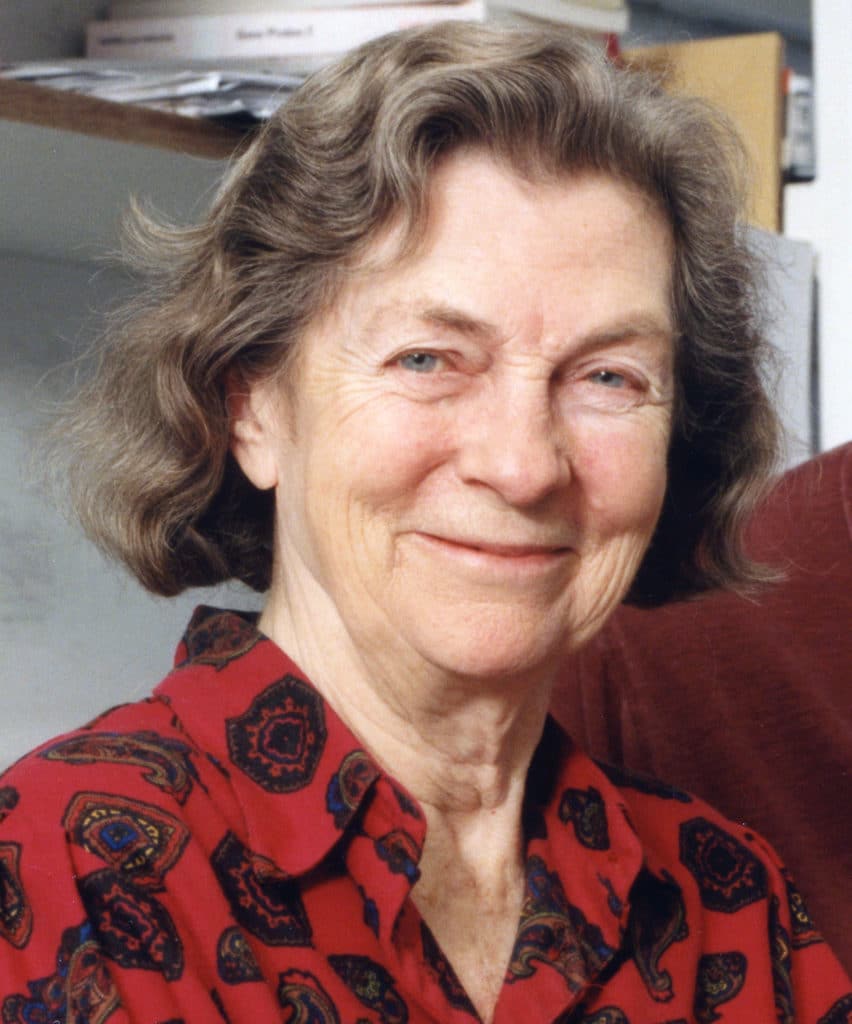
Dame Anne McLaren
Anne ran a small research group at the Institute at the end of an illustrious and influential career in the science of mammalian reproduction, during which she was also a champion for women in science. Read a short biography, and learn about the seminars and meetings held in Anne’s name, and the funded fellowships for young researchers.
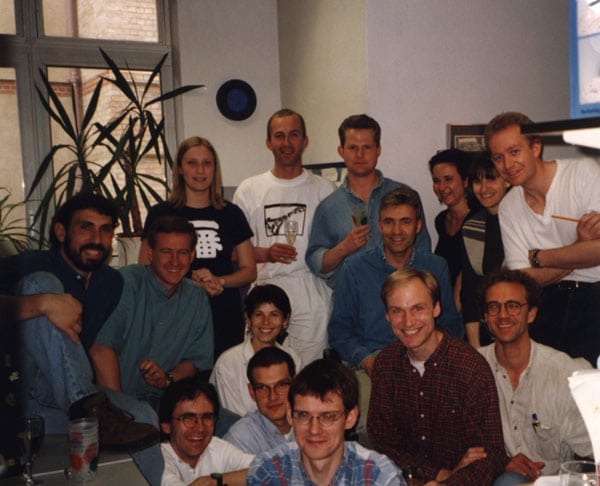
Jonathan Milner
Jonathan arrived in 1995 for a three-year postdoc with Tony Kouzarides, and went on to become a hugely successful serial entrepreneur and investor in UK life-science and high-tech start-ups. It was a formative time in the Kouzarides lab as this was when he identified the market opportunity for supplying high-quality antibodies to support protein interaction studies, and in 1998 founded Abcam with Tony and with David Cleevely.
In 2015 Jonathan and Tony co-founded the Milner Therapeutics Institute.
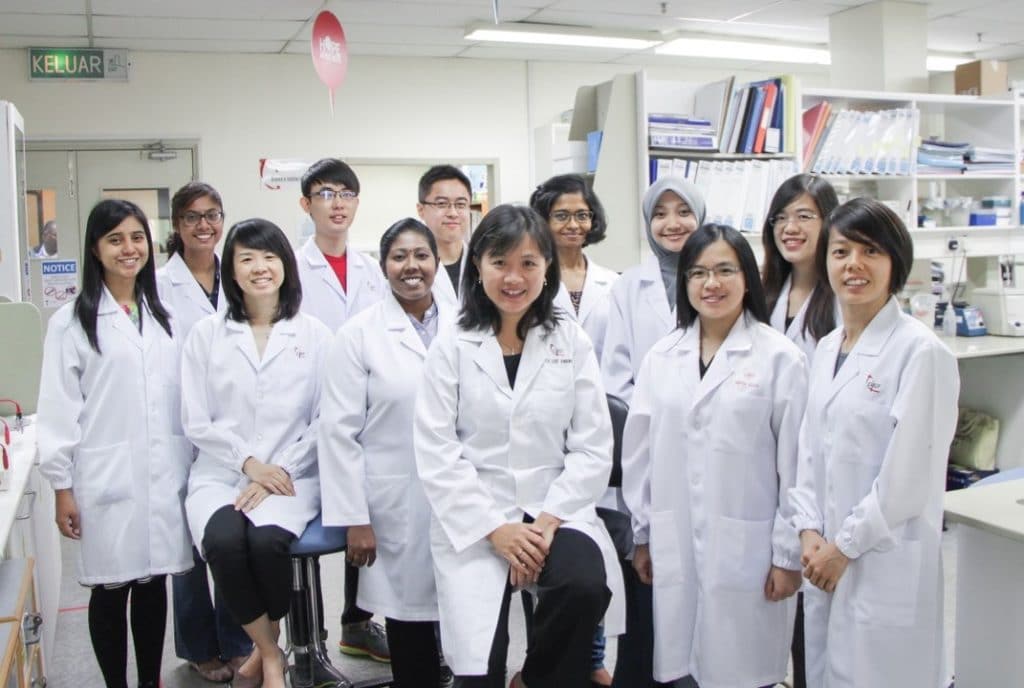
Soo-Hwang Teo OBE
After doing her postdoc in the Jackson lab, Soo-Hwang worked for Cancer Research UK. Learning from the CRUK model she and two colleagues established Cancer Research Malaysia, the country’s first independent cancer research non-profit organisation. She remains as Chief Scientific Officer and is also Principal Investigator on three major breast and ovarian cancer projects. Her research “puts Asians on the map for Precision Medicine”, and this contributed to the award of an OBE from Her Majesty Queen Elizabeth in 2018.
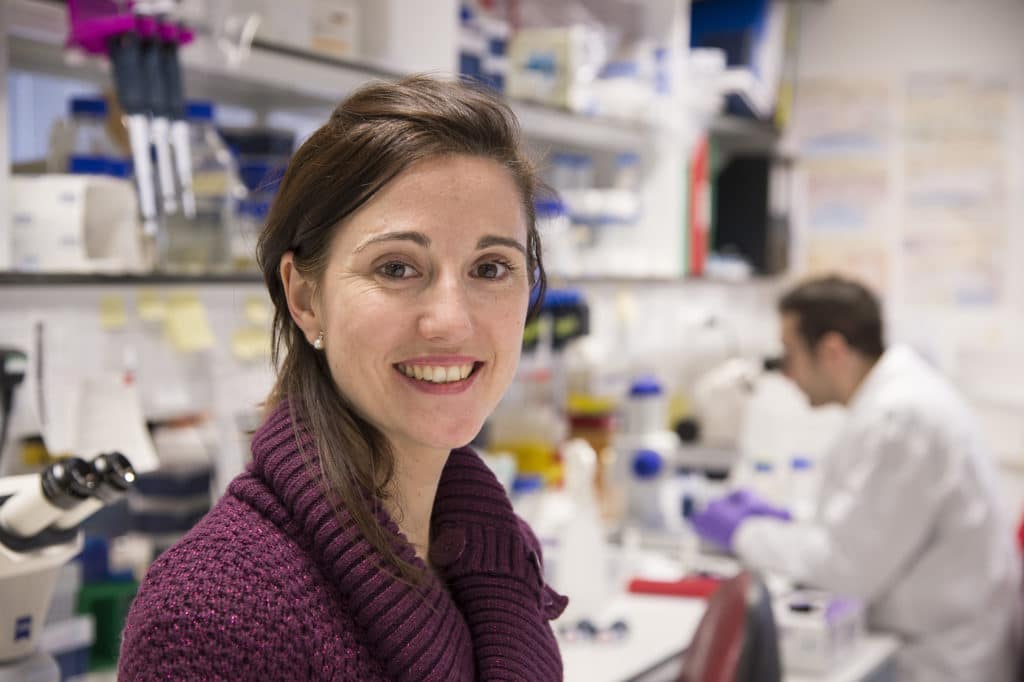
Meri Huch
Former group leader Meri Huch won multiple prizes for her work on organoids, including the NC3Rs International Prize, The Hamdan Award for Medical Research Excellence and the BINDER Innovation Prize. Meri proved that liver tumouroids in vitro could recapitulate the patient-specific progression of a liver tumour, which could provide a platform to experiment with personalised anti-cancer therapeutic regimens in vitro. She continues her research now as Lise Meitner Max Planck Research Group Leader at the MPI-CBG in Dresden, Germany.



